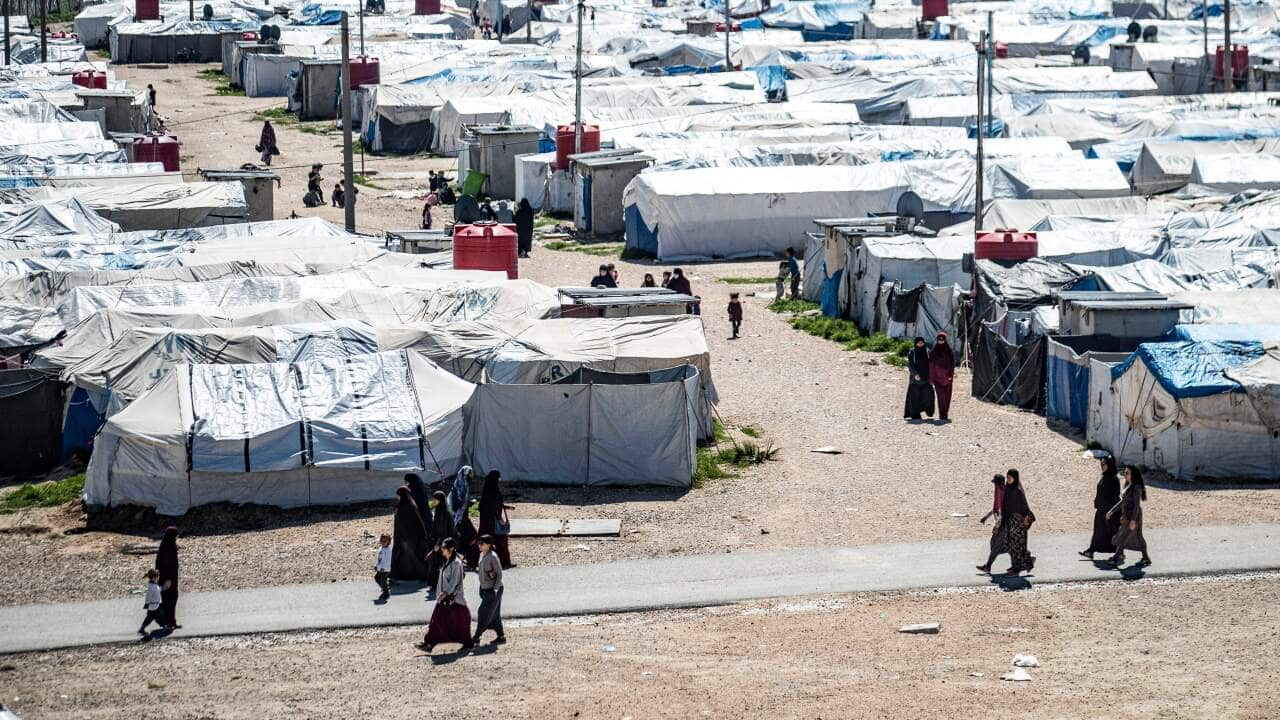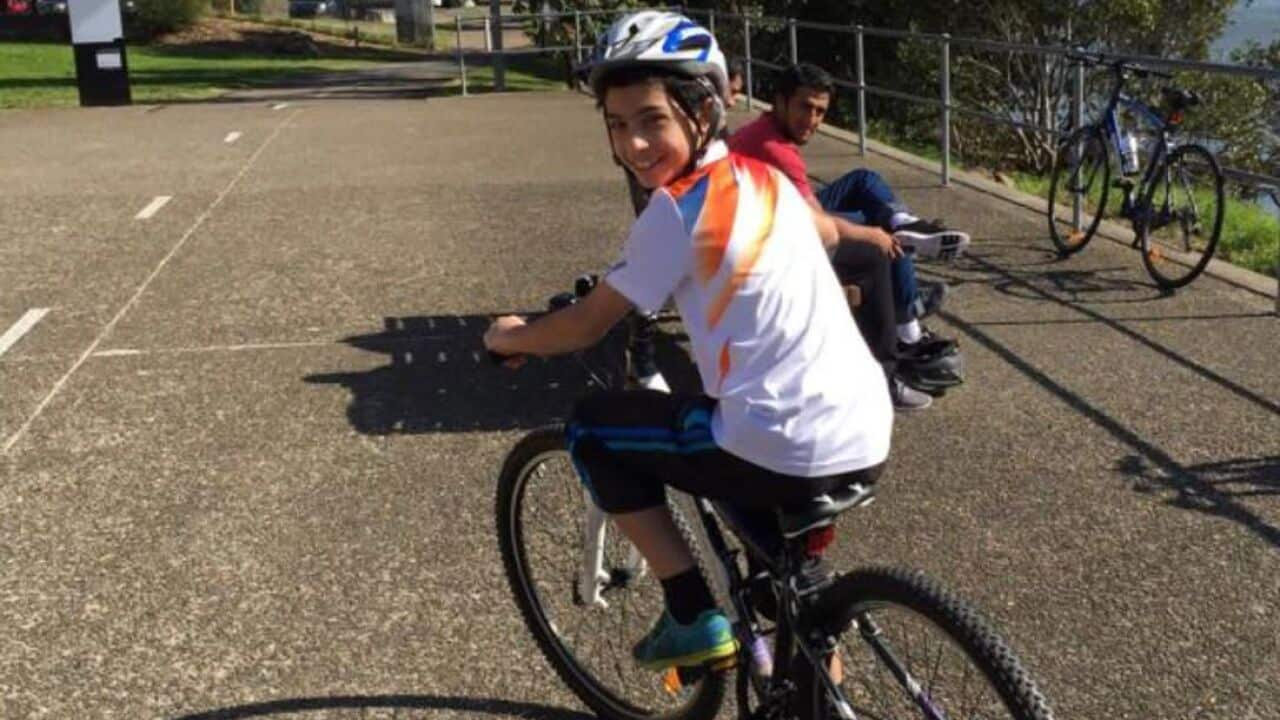Key Points
- The women and children have been in a refugee camp since 2019. More are expected to be repatriated in coming months.
- The first people removed were assessed as the most vulnerable of those held.
Australian women and children held in Syria since the fall of the self-proclaimed Islamic State have started their journey home.
Held in detention since 2019, four women and 13 children were taken from the al-Roj camp on Thursday afternoon to Erbil in Iraq to start their trip back to Sydney, news agency AAP understands.
Karen Andrews, shadow minister for Home Affairs, told SBS News she's concerned with the government's sharing of information about the mission.
"I'm deeply concerned about the level of information about this proposed mission if that's what's happening," she said.
"Syria is not a safe place for people to travel to, and if Australians are to go in there to commence a rescue mission to bring these people out of those camps, then the more information that is in the public domain about that, the greater the risk for those individuals."
Ms Andrews said she was concerned with the potential "ongoing cost" of "monitoring" people who were rescued from Syria once they returned to Australia.
Speaking to reporters on Friday, Mr Albanese was tight-lipped over reports of the repatriation.
The prime minister said the former government brought back some children from Syria, and that his government would "act in a way that keeps Australians safe."
Mr Albanese said national security agencies would prefer repatriation details to not be made public at this point in time. He said he would not add to the matter, and told Labor MPs to do the same.
"I don't intend to add to it, and I will take the advice of the national security agency as my government always will," Mr Albanese said.
Earlier, Opposition leader Peter Dutton told Sky News the extractions were not in the national interest, claiming the rescues could inflame the risk of terrorism in Australia.
Mr Dutton called on the prime minister to explain what security measures were in place to monitor the individuals.
Rehabilitation the next priority, says rights advocate
Associate director and counterterrorism lead at Human Rights Watch, Letta Taylor, told SBS News that if confirmed, the Australian government should be praised for the mission.
"If confirmed, hats off to Australia's new government for taking this long overdue step that the former government wouldn't," she said.
"Australian children who were forced to live under ISIS and then in squalid locked camps in northeast Syria have endured unimaginable horrors."
She said the government must care for the repatriated citizens upon their return.
"As next steps, the authorities should provide rehabilitation for all returnees," she said.
"They can monitor and prosecute the adults as warranted. And the government should bring home the other Australians, too.
"Australia can play a leadership role on counterterrorism through these orderly repatriations of its nationals, who've been held for years without charge or trial in northeast Syria."

Earlier this month, the Albanese government confirmed a rescue plan to bring home 16 women and 42 children who are families of IS members. Source: Getty, AFP / Delil Souleiman
The first people removed were assessed as the most vulnerable of those held.
Reports say the federal government worked with Kurdish authorities on the extraction, including to DNA test the individuals to prove they're Australian citizens.
It's understood most of the children were born in Syria, meaning they'll be heading to Australia for the first time.
Germany, France and Denmark are other nations that have brought citizens home from Syria.
The Department of Home Affairs said it couldn't offer comment on the extraction given the sensitive nature of the matters involved.
Earlier this month, Sydney man Kamalle Dabboussy, the father and grandfather of one of the Australian women and three children in the camp, expressed hope the detainees would soon be returned safely.
—With AAP



